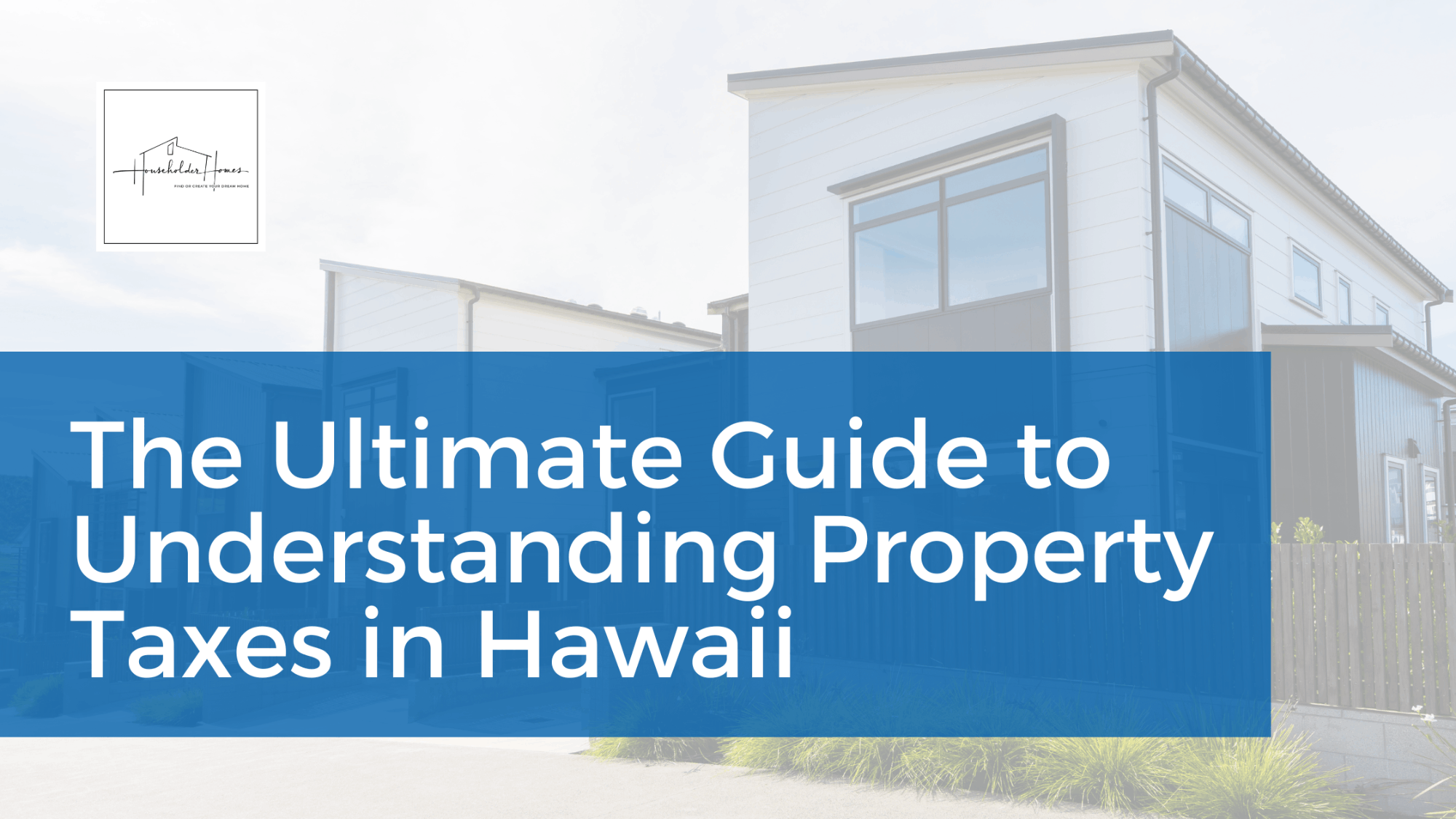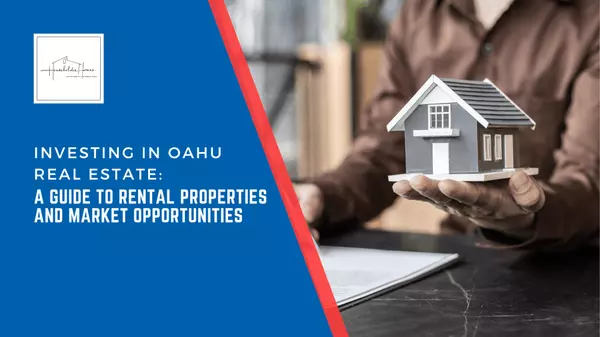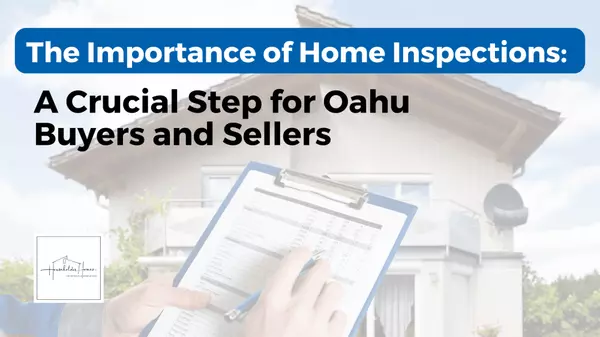The Ultimate Guide to Understanding Property Taxes in Hawaii

Are you considering purchasing Oahu real estate and wondering about the financial implications, specifically understanding property taxes in Hawaii? Property taxes are a fundamental aspect of homeownership, yet their calculation and nuances can often seem complex. Whether you're eyeing a luxury property in Kailua, a family home in Mililani, or an investment opportunity in Kapolei, knowing how these taxes work is crucial for budgeting and long-term financial planning. This ultimate guide will demystify property taxes across the Hawaiian islands, with a particular focus on Oahu, to help you make informed decisions.
What Are Property Taxes and Why Do They Matter?
Property taxes are levied by local governments (counties in Hawaii) on real estate. They are a primary source of funding for essential public services such as schools, police and fire departments, roads, parks, and other community infrastructure. For a homeowner, these taxes represent an ongoing expense that must be factored into the true cost of homeownership.
In Hawaii, property taxes are unique because they are administered at the county level, not the state level. This means the rates and classifications can vary significantly depending on which island or county your property is located in. Our focus here will primarily be on the City and County of Honolulu, which governs Oahu.
How Property Taxes Are Assessed in Oahu
The process of determining your property tax bill in Oahu involves two main components: your property's assessed value and the applicable tax rate.
1. Property Assessment
The City and County of Honolulu's Department of Budget and Fiscal Services, Real Property Assessment Division, assesses the value of all properties on Oahu annually.
- Market Value: Properties are assessed at their fair market value as of October 1st each year. This is the amount a willing buyer would pay a willing seller in an open market.
- Notification: Property owners receive an "Assessment Notice" around December 15th, detailing their property's assessed value and classifications for the upcoming tax year (July 1st to June 30th).
- Appeals: If you disagree with your property's assessment, you have the right to file an appeal, typically by January 15th.
2. Property Tax Rates
Once the assessed value is determined, it is multiplied by the tax rate applicable to your property's classification. The City Council sets these rates annually, usually in June.
- Classifications: Oahu categorizes properties into various classifications, each with its own tax rate. Common classifications include:
- Residential A: Owner-occupied homes (primary residence). This category typically has the lowest tax rate.
- Residential: Non-owner-occupied homes (e.g., rentals, second homes).
- Commercial/Industrial: Business properties.
- Hotel & Resort: Properties used for transient accommodations.
- Apartment: Multi-unit residential buildings.
- Agricultural: Farm properties.
- Rates: Tax rates are expressed per $1,000 of net taxable assessed value. For example, a rate of $3.50 means $3.50 in tax for every $1,000 of assessed value.
Key Exemptions and Deductions for Oahu Homeowners
Hawaii offers several exemptions that can significantly reduce your taxable assessed value, thereby lowering your property tax bill.
- Home Exemption: The most common and substantial exemption for owner-occupants. If your Oahu property is your primary residence, you may qualify for a significant reduction in your assessed value. The amount can vary and is subject to annual adjustments and specific requirements.
- Other Exemptions: Additional exemptions may be available for seniors, individuals with disabilities, blind persons, veterans, and homeowners who install renewable energy systems.
- How to Apply: Home exemptions typically require an initial application by September 30th to qualify for the following tax year. It's crucial to file on time.
When Are Property Taxes Due in Oahu?
Property taxes on Oahu are paid in two semi-annual installments:
- First Half: Due by August 20th, covering July 1st to December 31st.
- Second Half: Due by February 20th, covering January 1st to June 30th. If these dates fall on a weekend or holiday, the due date is the next business day. Penalties and interest apply to late payments.
Property Taxes Across Different Oahu Neighborhoods
While the county-wide tax rates apply, the actual amount you pay will vary greatly depending on your property's assessed value, which can differ significantly across neighborhoods.
- High-Value Areas: Properties in desirable areas like Kailua or coastal Kaneohe often have higher assessed values, leading to higher tax bills, even with the same tax rate.
- Developing Areas: Newer homes in Kapolei or Ewa Beach might have higher assessed values than older homes of similar size elsewhere, but their modern amenities can attract buyers.
- Rural/Elevated Areas: Properties in Makakilo or Waianae might offer relatively lower assessed values, potentially resulting in lower tax bills, making them an attractive option for some buyers.
For the most accurate and up-to-date information on Oahu's property tax rates and classifications, it's always best to consult the official City and County of Honolulu Department of Budget and Fiscal Services website (outbound link placeholder).
Your Expert Guide to Oahu Real Estate and Property Taxes
Understanding property taxes in Hawaii is an essential part of responsible homeownership. It’s a detail that needs to be factored into your budget, whether you’re considering an investment property or your forever home. Our team at Move2Oahu.com is not only expert in helping you find the perfect Oahu real estate in areas like Mililani, Kaneohe, Kapolei, Ewa Beach, Makakilo, Waianae, or Kailua, but we also ensure you understand all associated costs. We work closely with our clients to provide comprehensive financial insights, connecting you with resources to fully grasp your property tax obligations and potential exemptions.
Ready to Understand Your Oahu Home's Financial Landscape?
Don't let the complexities of property taxes deter your Oahu homeownership dreams. Our knowledgeable team at Move2Oahu.com is here to provide clarity and guidance through every financial aspect of buying and owning property in Hawaii.
Contact Matt Householder and the team directly at (808) 294-7085 or email him at householderhomes@gmail.com . You can also visit us at Move2Oahu.com to learn more and take the next step towards your Oahu real estate success.Categories
- All Blogs (26)
- Beyond the Beach: Exploring the Unique Charms of Makakilo and Waianae Living (1)
- Discovering Your Dream Home: Family-Friendly Lifestyles in Mililani and Kapolei (1)
- Ewa Beach Adventures: Coastal Living and Community Highlights (1)
- Ewa Beach Living: A Guide to Golf Courses, Community Events, and Coastal Charm (1)
- First-Time Homebuyer, Home Buying Process, Oahu Real Estate, Mortgage Pre-Approval, Closing Costs, H (1)
- Home Value, Selling Tips, Oahu Real Estate, Home Sellers, Property Value, Home Improvements, Real Es (1)
- Island Living in Paradise: A Lifestyle Guide to Kailua and Kaneohe (1)
- Oahu Real Estate, Housing Market, Buying a Home, Selling a Home, Real Estate Guide, Oahu Housing Tre (1)
- Oahu Real Estate, Market Timing, Buy or Sell, Real Estate Trends, Housing Market Data, Oahu Market A (1)
- Oahu's Best Kept Secrets: Lifestyle Perks in Your Ideal Neighborhood (1)
- Oahu's Local Flavors: A Guide to Hidden Eateries, Farmers Markets, and Community Hangouts (1)
- Oahu's Outdoor Playground: Exploring Hiking Trails, Water Sports, and Natural Wonders Across the Island (1)
- Real Estate Investment Strategies: Building Wealth Through Property (1)
- Real Estate Jargon, Glossary, Home Buyers, Home Sellers, Oahu Real Estate, Real Estate Terms, Buying (1)
- Relocating to Oahu: Your Essential Guide to Moving to Paradise (1)
- Renovations with the Best ROI: Smart Upgrades for Your Oahu Home (1)
- Secluded Paradise: Finding Serenity and Views in Makakilo and Waianae (1)
- Selling Your Home in a Changing Market: What Every Oahu Seller Needs to Know (1)
- The Importance of Home Inspections: A Crucial Step for Oahu Buyers and Sellers (1)
- The Ultimate Guide to Understanding Property Taxes in Hawaii (1)
- Understanding Mortgage Options: Finding the Right Loan for You (1)
- Waterfront Wonders: Discovering Life Along the Shores of Kailua and Kaneohe (1)
- Your Oahu Lifestyle Awaits: Matching Your Vibe to the Perfect Neighborhood (1)
Recent Posts










GET MORE INFORMATION

